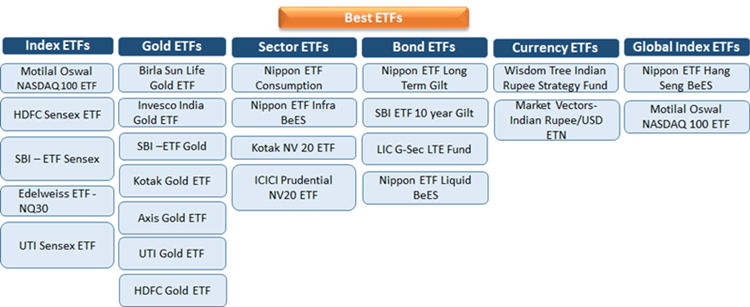The Rising Stars: Best Real Estate Stocks in India 2025
Investing in Real Estate stocks can be an attractive option for investors looking to gain exposure to the real estate sector without directly owning physical properties. Real estate stocks represent shares of publicly traded companies engaged in real estate development, ownership, management, or related activities.

Here are some top performing real estate stocks to invest along with some key points to consider when it comes to real estate stock investment.
Top Performing Real Estate Stocks
| Companies | Market Capitalisation | 12 Month Earnings monthly-earning | Price to Earnings price-to-earning | 10 Yrs | 5 Yrs | 3 Yrs |
|---|---|---|---|---|---|---|
| DLF | ₹1,21,785 Cr | ₹2,093 Cr | 58.18 | 11.15 | 21.13 | 52.76 |
| Godrej Properties | ₹46,890 Cr | ₹621 Cr | 82.06 | 21.63 | 19.97 | 23.67 |
| Prestige Estate | ₹22,298 Cr | ₹942 Cr | 23.68 | 16.26 | 15.70 | 46.36 |
| Oberoi Realty | ₹39,958 Cr | ₹1,905 Cr | 20.98 | 18.55 | 17.97 | 41.18 |
| Brigade Enterprise | ₹13,106 Cr | ₹222 Cr | 44.97 | 32.01 | 35.71 | 59.74 |
| Phoenix Mills Ltd | ₹30,058 Cr | ₹1,335 Cr | 22.52 | 21.64 | 22.76 | 42.54 |
| Indiabulls Real Estate | ₹3,675 Cr | ₹-608 Cr | - | -0.10 | -15.18 | 8.51 |
As of 27/7/2023
Talk to our investment specialist
The Real Estate Industry's Future Prospects
The Indian real estate Industry has been a significant contributor to the country's Economic Growth and has seen various ups and downs over the years. Here are some factors that could influence its future prospects:
Urbanization and Demographics: India's ongoing urbanization process and a growing middle class have been key drivers of demand for residential and commercial properties. As the population continues to rise and people move to urban centers, the demand for housing and commercial spaces is likely to remain strong.
Government Policies: Government policies and regulations play a crucial role in shaping the real estate sector. In recent years, the Indian government has introduced various reforms like the Real Estate (Regulation and Development) Act (RERA), Goods and Services Tax (GST), and initiatives like "Housing for All" to boost transparency, attract foreign investment, and provide affordable housing. Continued government support and investor-friendly policies can positively impact the industry's growth.
Technology and Innovation: Advancements in technology have the potential to transform the real estate sector. Digital platforms, property portals, virtual property tours, and smart home technologies are becoming more prevalent. Embracing technology and innovative practices can enhance customer experiences and operational Efficiency for developers.
Infrastructure Development: Improvements in infrastructure, such as better transportation networks, metro expansions, and connectivity, can open up new growth corridors and increase the attractiveness of certain locations for real estate development.
Sustainability and Green Building Initiatives: With growing environmental awareness, there is an increasing demand for sustainable and eco-friendly construction practices. Green buildings that are energy-efficient and environmentally responsible are likely to gain prominence.
Financial and Market Stability: The stability of the Indian Economy and financial markets also significantly impact the real estate sector. Favorable Economic Conditions and access to credit can support property purchases and investments.
Pandemic Impact: The COVID-19 pandemic had a short-term impact on the real estate industry, with disruptions in construction and sales activities. However, the sector showed signs of recovery as restrictions eased. The long-term effects of the pandemic on the real estate market will depend on factors like Economic Recovery, consumer confidence, and remote work trends.
It's important to note that the real estate industry's future prospects are subject to various external factors and market conditions. While there are positive indicators, there could also be challenges, such as regulatory changes, economic fluctuations, or shifts in consumer preferences.
Choosing the Right Real Estate Stocks
Choosing the right real estate stock requires careful research and analysis, as investing in the stock market can be both rewarding and risky. Here are some key factors to consider when selecting real estate stocks:
Company's Financial Health: Examine the financial health of the real estate company. Look at key financial ratios, such as debt-to-equity ratio, current ratio, and profitability indicators. A company with a strong Balance Sheet and healthy financials is generally more stable and resilient.
Growth Prospects: Evaluate the growth prospects of the real estate company. Consider factors like its pipeline of projects, expansion plans, and target markets. Companies with a diversified and growing Portfolio are often more attractive to investors.
Location and Market Focus: Assess the company's geographical focus and the markets it operates in. Real estate companies with exposure to high-growth areas or emerging markets may offer better growth potential.
Management Team: The management team's expertise and track record are crucial. Research the leadership's experience in the real estate industry and their ability to execute the company's strategies effectively.
Dividend History: If you are seeking Income from your investment, consider the real estate company's dividend history. Look for a track record of consistent dividend payments and the company's ability to generate sufficient cash flow to sustain dividends.
Regulatory Environment: Real estate is influenced by various regulations and government policies. Stay informed about any changes in regulations that may impact the company's operations and profitability.
Competitive Advantage: Evaluate the company's competitive advantage over its peers. Companies with a unique value proposition, strong brand recognition, or a specialized niche may have a better chance of outperforming the competition.
Valuation: Assess the company's valuation relative to its earnings, Book Value, and industry peers. Compare the price-to-earnings (P/E) ratio and price-to-book (P/B) ratio to industry averages to determine if the stock is reasonably priced.
Economic and Market Conditions: Consider the broader economic and real estate market conditions. A strong economy and a positive real estate market outlook can provide tailwinds for real estate stocks.
Risk Tolerance: Lastly, consider your own risk tolerance and investment goals. Real estate stocks can be volatile, so it's important to align your investment choices with your risk appetite and investment time horizon.
Always conduct thorough research and due diligence before investing in any stock, including real estate stocks. Consider seeking advice from a financial advisor or investment professional to make informed decisions based on your individual circumstances.
All efforts have been made to ensure the information provided here is accurate. However, no guarantees are made regarding correctness of data. Please verify with scheme information document before making any investment.












